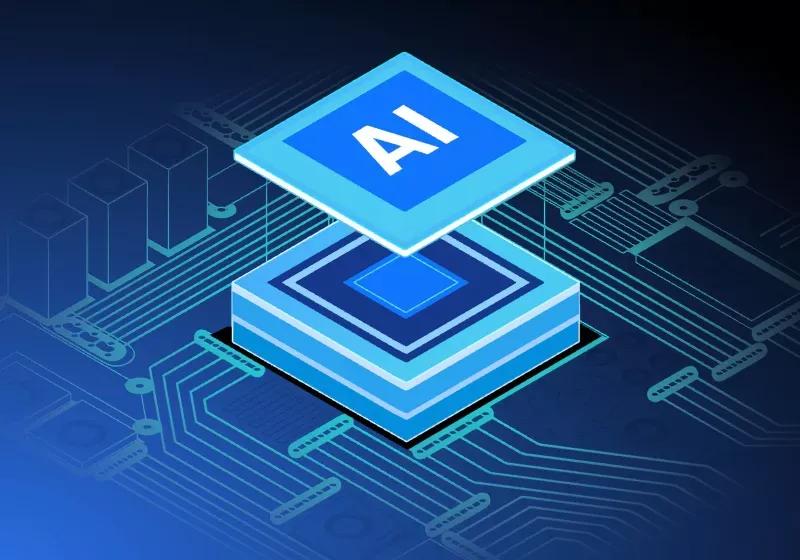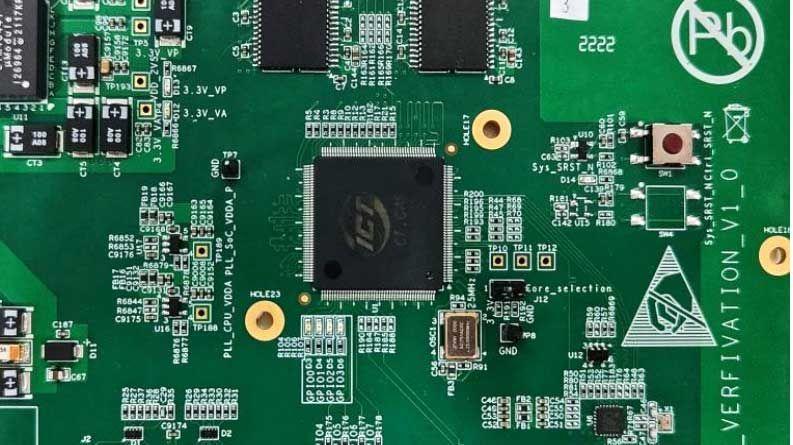Google's AlphaChip: Revolutionizing Computer Chip Design with AI
2 Sources
2 Sources
[1]
How AlphaChip transformed computer chip design
In 2020, we released a preprint introducing our novel reinforcement learning method for designing chip layouts, which we later published in Nature and open sourced. Today, we're publishing a Nature addendum that describes more about our method and its impact on the field of chip design. We're also releasing a pre-trained checkpoint, sharing the model weights and announcing its name: AlphaChip. Computer chips have fueled remarkable progress in artificial intelligence (AI), and AlphaChip returns the favor by using AI to accelerate and optimize chip design. The method has been used to design superhuman chip layouts in the last three generations of Google's custom AI accelerator, the Tensor Processing Unit (TPU). AlphaChip was one of the first reinforcement learning approaches used to solve a real-world engineering problem. It generates superhuman or comparable chip layouts in hours, rather than taking weeks or months of human effort, and its layouts are used in chips all over the world, from data centers to mobile phones.
[2]
Google unveils AlphaChip AI-assisted chip design technology -- chip layout as a game for a computer
This week, Google unveiled its AlphaChip reinforcement learning method for designing chip layouts. The AlphaChip AI promises to substantially speed up the design of chip floorplans and make them more optimal in terms of performance, power, and area. The reinforcement learning method, now shared with the public, has been instrumental in designing Google's Tensor Processing Units (TPUs) and has been adopted by other companies, including MediaTek. Chip design layout, or floorplan, has traditionally been the longest and most labor-intensive phase of chip development. In recent years, Synopsys has developed AI-assisted chip design tools that can accelerate development and optimize a chip's floorplan. However, these tools are pretty costly. Google wants to democratize this AI-assisted chip design approach somewhat. Nowadays, designing a floorplan for a complex chip -- such as a GPU -- takes about 24 months if done by humans. Floorplanning of something less complex can take several months, meaning millions of dollars in costs, as design teams are usually quite significant. Google says that AlphaChip accelerates this timeline and can create a chip layout in just a few hours. Moreover, its designs are said to be superior as they optimize power efficiency and performance. Google also demonstrated a graph showing wire length reduction across various versions of TPUs and Trillium compared to human developers. AlphaChip uses a reinforcement learning model in which the agent takes actions in the pre-set environment, observes the outcomes, and learns from these experiences to make better choices in the future. In the case of AlphaChip, the system views chip floorplanning as a kind of game that places one circuit component at a time on a blank grid. The system improves as it solves more layouts, using a graph neural network to understand the relationships between components. Since 2020, AlphaChip has been used to design Google's own TPU AI accelerators that drive many of Google's large-scale AI models and cloud services. These processors run Transformer-based models powering Google's Gemini and Imagen. AlphaChip has improved the design of each successive generation of TPUs, including the latest 6th Generation Trillium chips, ensuring higher performance and faster development. Still, both Google and MediaTek rely on AlphaChip for a limited set of blocks, and human developers still do the bulk of the work. By now, AlphaChip has been used to develop a variety of processors, including Google's TPUs and MediaTek's Dimensity 5G system-on-chips, which are widely used in various smartphones. As a result, AlphaChip is able to generalize across different types of processors. Google says it has been pre-trained on a wide range of chip blocks, which enables AlphaChip to generate increasingly efficient layouts as it practices more designs. While human experts learn, and many learn fast, the pace of learning of a machine is orders of magnitude higher. Google says AlphaChip's success has inspired a wave of new research into using AI for different stages of chip design. This includes extending AI techniques into areas like logic synthesis, macro selection, and timing optimization, which Synopsys and Cadence offer already, albeit for a lot of money. According to Google, researchers are also exploring how AlphaChip's approach could be applied to even further stages of chip development. "AlphaChip has inspired an entirely new line of research on reinforcement learning for chip design, cutting across the design flow from logic synthesis to floorplanning, timing optimization and beyond," a statement by Google reads. Looking ahead, Google sees potential in AlphaChip to revolutionize the entire chip design lifecycle: from architecture design to layout to manufacturing, AI-driven optimization could lead to faster chips, smaller (i.e., cheaper), and more energy-efficient. While for now, Google's servers and MediaTek Dimensity 5G-based smartphones benefit from AlphaChip, applications may broaden to pretty much everything in the future. Future versions of AlphaChip are already under development, so stay tuned for even more AI-driven chip designs.
Share
Share
Copy Link
Google DeepMind's AlphaChip AI system is transforming the semiconductor industry by automating chip design processes. This breakthrough technology promises faster, more efficient chip development, potentially reshaping the future of computing.

The Dawn of AI-Driven Chip Design
Google DeepMind has unveiled AlphaChip, a groundbreaking AI system that is set to revolutionize the semiconductor industry. This innovative technology automates the complex process of computer chip design, potentially accelerating development cycles and improving chip performance
1
.AlphaChip's Innovative Approach
AlphaChip treats chip design as a game, utilizing reinforcement learning techniques to optimize chip layouts. This novel approach allows the AI to explore countless design possibilities, surpassing human capabilities in both speed and efficiency
2
.Impressive Results and Industry Impact
In trials, AlphaChip demonstrated remarkable performance, designing chips that matched or exceeded the quality of those created by human experts. The system achieved this feat in a fraction of the time, completing designs in just hours compared to the weeks or months typically required by human designers
1
.Collaboration with Human Experts
Despite its autonomous capabilities, AlphaChip is designed to work alongside human engineers rather than replace them. The system augments human expertise, handling repetitive tasks and exploring design spaces more thoroughly than previously possible
2
.Potential for Industry-Wide Transformation
The introduction of AlphaChip could have far-reaching implications for the semiconductor industry. By streamlining the chip design process, it may lead to faster innovation cycles, reduced costs, and the development of more advanced and efficient computer chips
1
.Related Stories
Addressing the Chip Shortage
AlphaChip's ability to accelerate chip design could play a crucial role in addressing the ongoing global chip shortage. By enabling faster production of new chip designs, it may help meet the increasing demand for semiconductors across various industries
2
.Future Prospects and Challenges
While AlphaChip represents a significant advancement in AI-assisted chip design, its long-term impact on the industry remains to be seen. As the technology continues to evolve, it will be crucial to address potential challenges, such as ensuring the reliability and security of AI-designed chips, and managing the transition for the existing workforce
1
.References
Summarized by
Navi
[1]
Related Stories
Recent Highlights
1
Google Gemini 3.1 Pro doubles reasoning score, beats rivals in key AI benchmarks
Technology

2
Meta strikes up to $100 billion AI chips deal with AMD, could acquire 10% stake in chipmaker
Technology

3
Pentagon threatens Anthropic with supply chain risk label over AI safeguards for military use
Policy and Regulation








